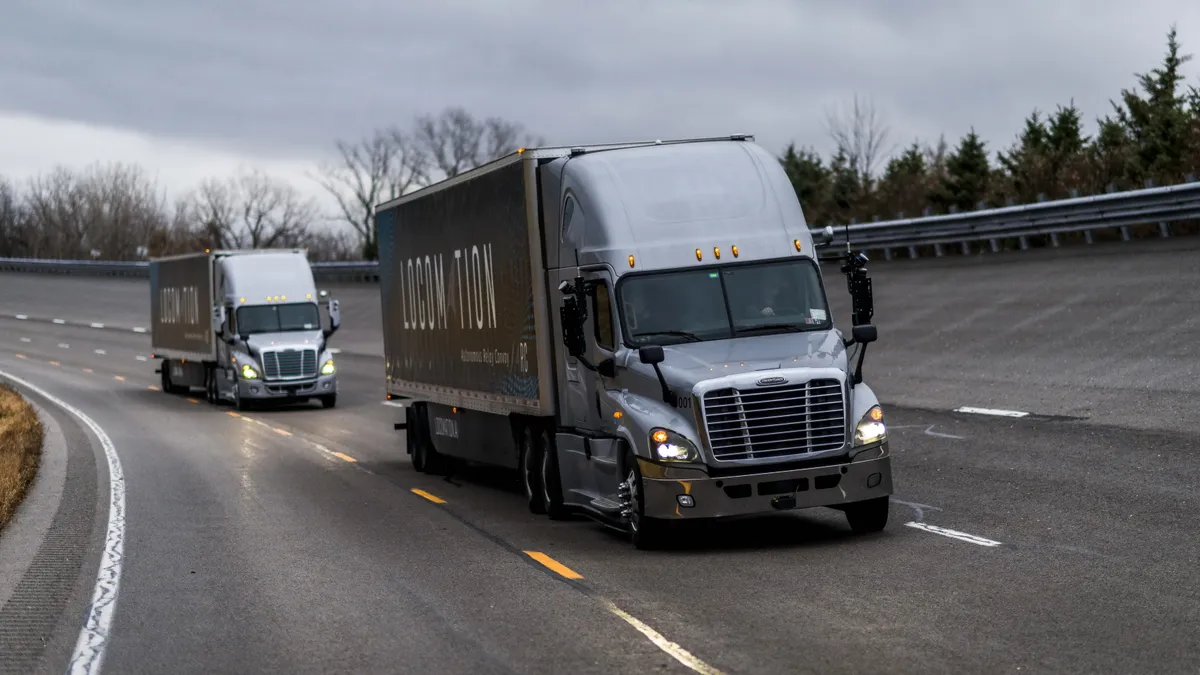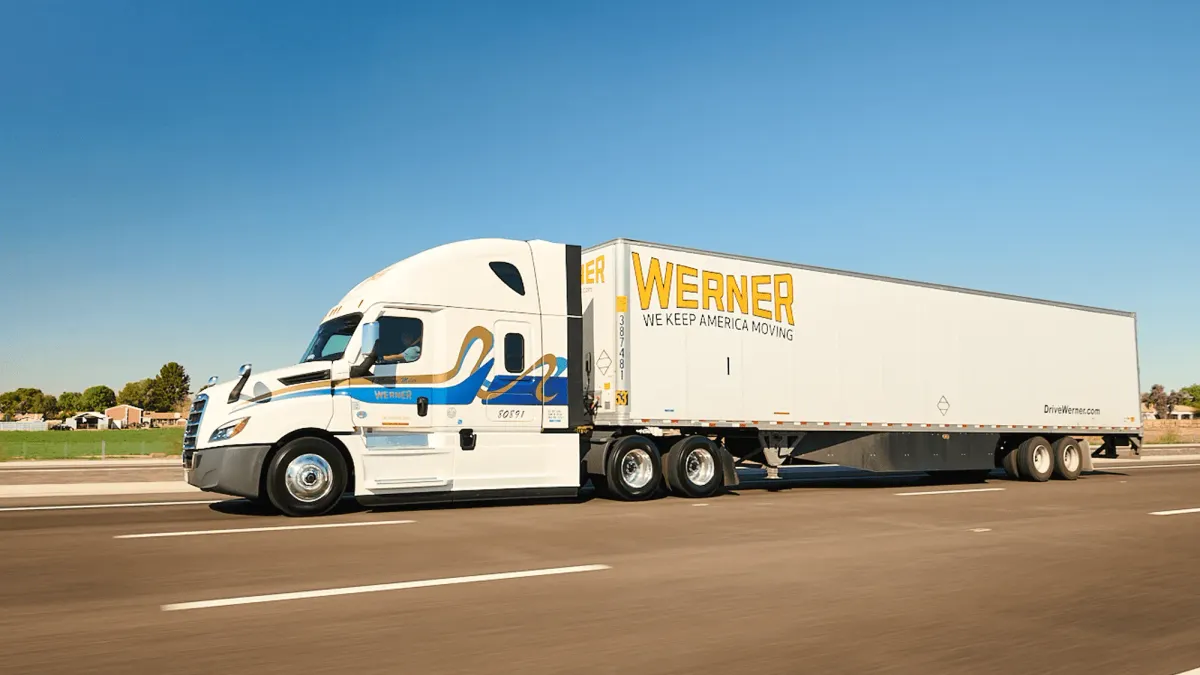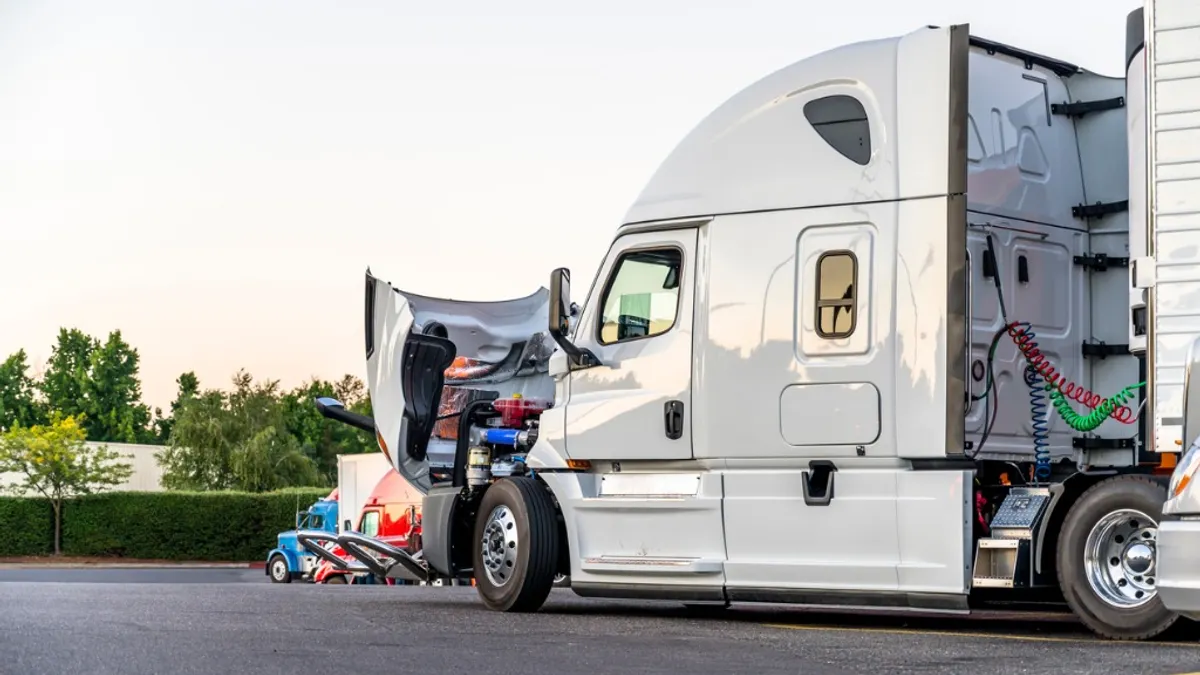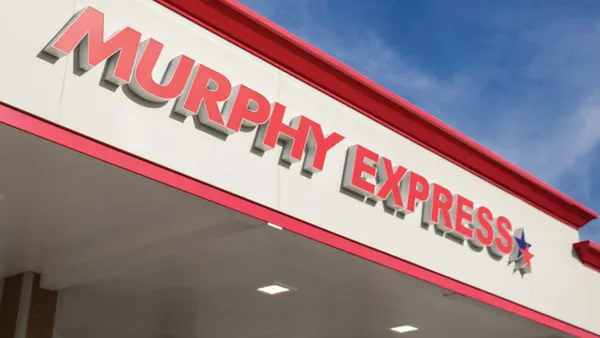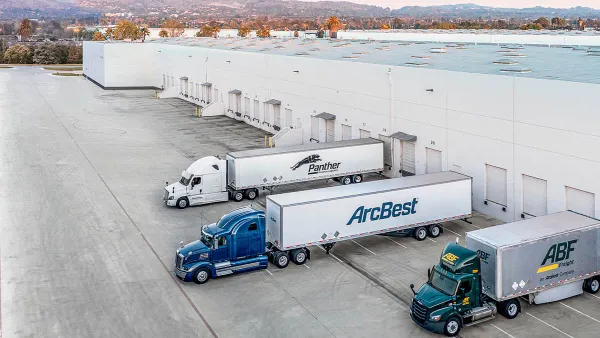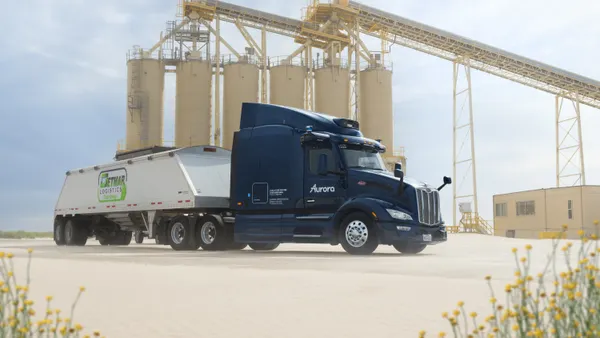Dive Brief:
- Technology company Locomation booked its first autonomous truck purchase order, the company said Thursday. Missouri-based carrier Wilson Logistics ordered Locomation's Autonomous Relay Convoy technology to be equipped on a minimum 1,120 of its tractors, with the first units delivered in early 2022.
- The purchase order also extends the existing commercial agreement between the two companies through 2028. Locomation and Wilson announced in March they would partner on test programs, conducted over the summer.
- While working together, the companies were able to "maximize asset utilization by capitalizing on freight density in each lane," Tom Kroswek, head of business development at Locomation, said in a statement. Locomation can help fleets improve yield, as well as asset utilization, according to Kroswek.
Dive Insight:
Autonomous trucking has been gaining momentum. The Wilson deal, which Locomation said is "the world’s first autonomous truck purchase order," comes on the heels of TuSimple's announcement with Volkswagen's Traton Group for the first European partnership between an OEM and a level 4 self-driving company, according to the companies.
While the technology is developing, its costs could be limiting quicker adoption. For one, autonomous trucks still use at least one human pilot. That makes labor-cost savings hard to achieve, according to Avery Vise, vice president of trucking research at FTR, who spoke to Transport Dive in March. Autonomous technology is expensive, and fleets plan to have drivers in at least one convoy vehicle, Vise said. Vise said fleets will likely figure out savings over time.
"I think it can make a measurable contribution to productivity in trucking," Vise said. "But I don't see it being the dominant paradigm within the next decade, at least."
Cost-savings have been the primary focus for Locomation. With Wilson, Locomation tested the Autonomous Relay Convoy technology and found it could reduce operating costs by 33% per mile, with an 8% reduction in fuel expense, the companies said.
During that test, two Locomation trucks hauling Wilson Logistics trailers were deployed as an Autonomous Relay Convoy on a 420-mile-long route from Portland, Oregon, to Nampa, Idaho. The convoy had one driver pilot a lead truck, equipped with technology augmentation, while the secondary truck followed in tandem through Locomation's autonomous system.
The convoy system will also remove 41 metric tons of carbon dioxide from the air, per tractor, annually, Wilson officials said. Experts have long touted platooning, which cuts down on air resistance for the trucks following the lead truck in a platoon formation, as a way to save fuel and reduce carbon emissions.
The Wilson deal is a relatively quick win for Locomation, which was founded in 2018 by autonomy researchers at Carnegie Mellon's National Robotics Engineering Center and trucking industry veterans.

